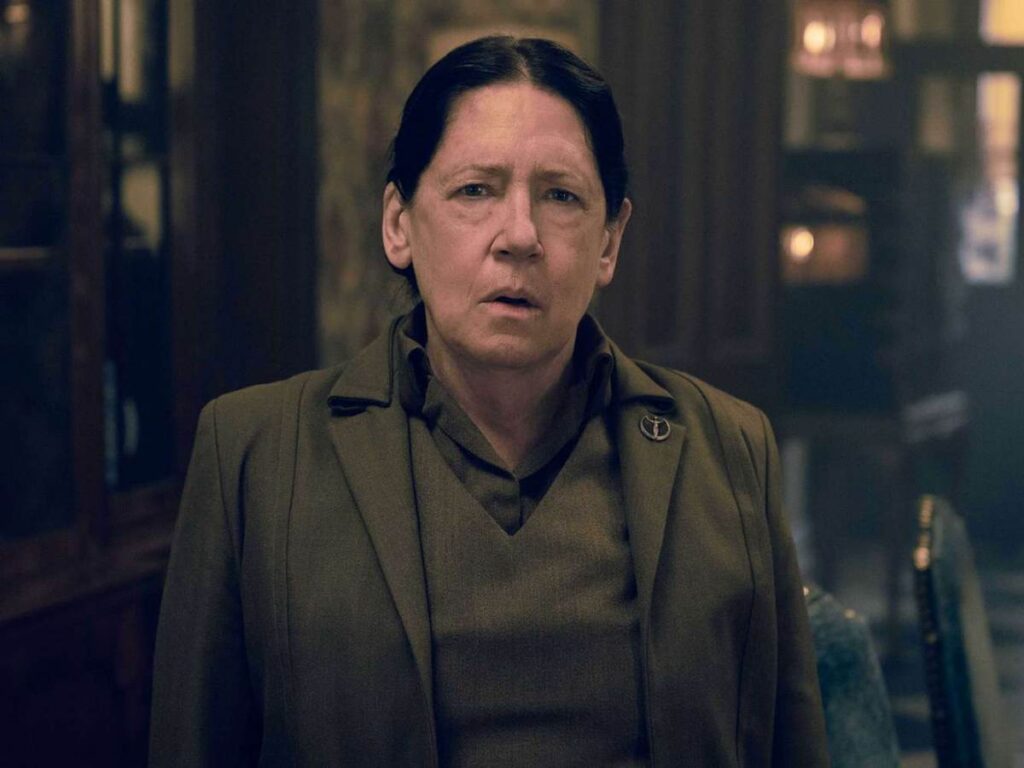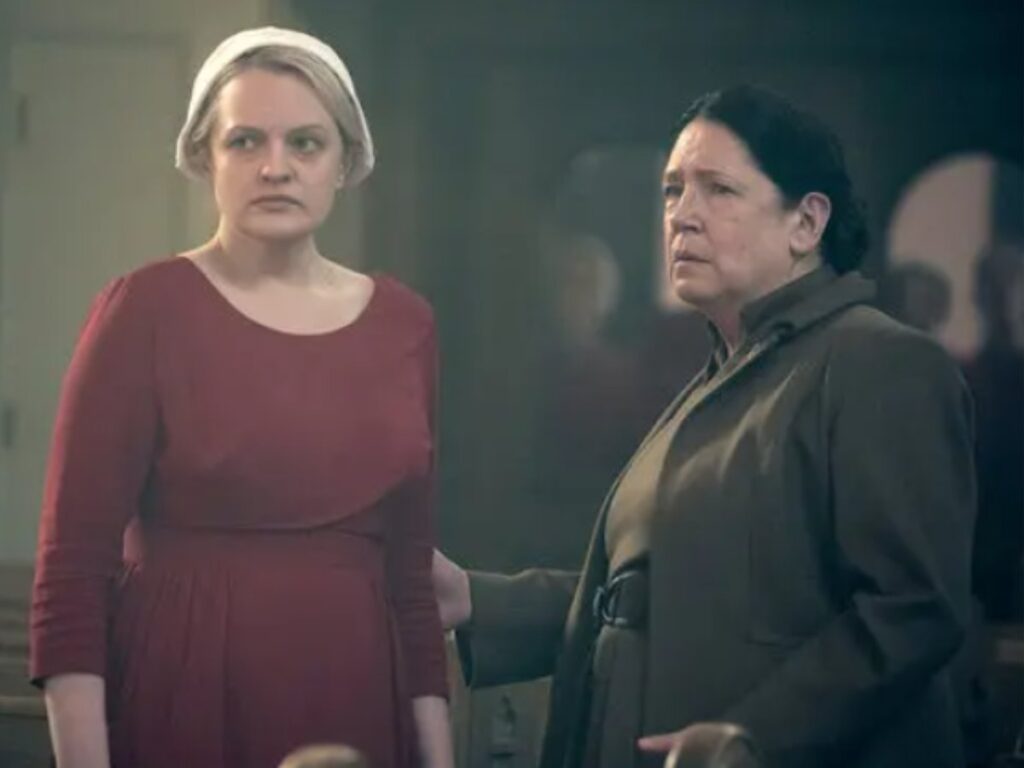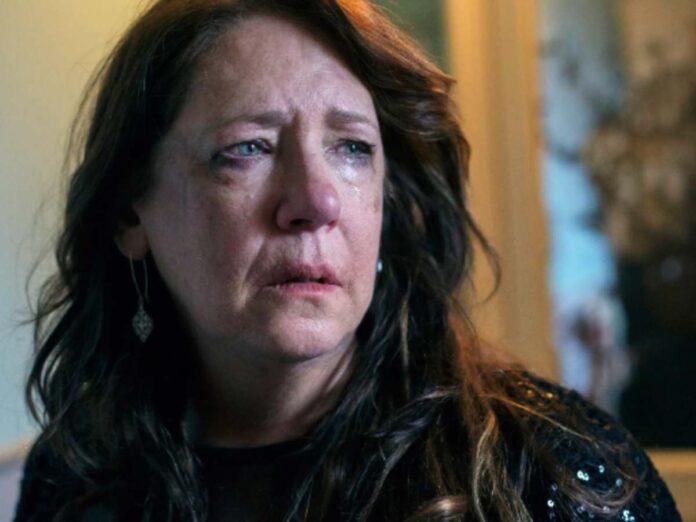‘The Handmaid’s Tale‘ has been received quite well, despite the massive popularity of its book written by Margaret Atwood. Rich with a variety of characters, the show narrative took an unexpected turn when it dedicated an entire episode of the show to Aunt Lydia’s essentially evil character.
The show peeled back the layers of Aunt Lydia’s character giving fans a glimpse into the life that shaped her evil stepmother personality. Ann Dowd, who played Aunt Lydia’s character with chilling precision, also admitted that she had eagerly awaited this moment wherein she could shed the bad woman persona and present the vulnerable version of Lydia’s past.
The Making Of Aunt Lydia

In the episode aptly titled ‘Unfit’, Aunt Lydia was shown to be a softer, more vulnerable woman as she was shown navigating a world outside the confines of Gilead in her past. The character suddenly embodies an aura that is in stark contrast to the Aunt Lydia responsible for some of the show’s most harrowing moments.
Before Gilead, Aunt Lydia has been shown to be a divorced, childless woman, who is also quite passionate about her career. As she is focused on her career, Lydia feels a spark of compassion for her boss, Mr. Thorne. During a particular make-out session, the duo gets carried away. However, her boss, a recent widower, refuses to sleep with her. He tells her that he cannot sleep with her though he would like to continue seeing her.
Related: “It’s Horrifying”: Elizabeth Moss Says ‘Handmaid’s Tale’ Has Become More Relevant In The Real World
Lydia breaks down, and cries in silence as her deep-seated shame and fear of losing control resurface. Later in the show, she blames Noelle — a friend she has recently grown close to on the show — for giving her a makeover and asking her to put herself out there for a man. She also acts on her anger, by registering Noelle as an unfit single mother for her son. The poor woman is deprived of her child because of Lydia’s rage — and that is perhaps where it all starts.
Showrunner Bruce Miller emphasizes the episode’s focus on shame and humiliation, revealing the psychological underpinnings of Lydia’s character. “So much of this season with Lydia is about losing control, and in those moments where she feels like she’s lost control, she’s humiliated,” showrunner Bruce Miller during an interview. He added that her character’s intricacies were written from the start, only to be unveiled in this particular episode.
“What I was looking for in her past was, What does feeling humiliated do to her? These are core things that don’t really have anything to do with Gilead,” Miller said. “In some ways, what I wanted to show is that Lydia is just as unforgiving to herself as she is to everybody else. That doesn’t make her a good person. But it certainly is interesting.”
‘The Handmaid’s Tale’ Creators And Cast Open Up About Aunt Lydia’s Journey

The episode’s exploration of Lydia’s past sheds light on her motivations and inner turmoil, that perhaps offer a logic and a deeper understanding of her complex antagonistic characteristics. The episode also provides insight into her initial days at Gilead, showing how she went through the chilling process of assigning handmaids to households without even flinching.
Dowd’s portrayal of Lydia’s unwavering commitment to the unfair Gilead regime is both chilling and compelling. As she looked back at the shooting of the episode focused on her character, she revealed that she herself got an insight into her character’s mind.
“I was raised in a loving home, but there was huge shame around sex,” Dowd said during an interview, trying to understand her character. “You have to wait for marriage. It’s the work of the devil. Women take a backseat. So this made so much sense to me, the fact that she went a little further than he was ready to go. There’s shame that she did it because she’s the woman and she shouldn’t have done it.“
“If it hadn’t been for Noelle, Lydia wouldn’t have taken those steps, so I think she connects those things. I better stick to the original plan. I will continue to teach. I do not want romance, sexuality in my life, and I will not allow half-baked mothers to keep their children,” she added.
This turns out to be a defining incident in Aunt Lydia’s life, who decides that women without a man should perhaps be left with no individual authorities whatsoever. As she gains control in Gilead, she makes sure that the handmaids are completely deprived of their freedom and dignity.
Aunt Lydia’s character, however, is extremely important for the show’s narrative, as it is in the book. Showrunner Bruce Miller, while speaking about the same, had asserted that she would assume an important role at the end of the show.
“When the story ends in the book, there’s a historical accounting later and you get the sense that Lydia played a very big role in the intervening years in Gilead after June, so I think whatever story we tell, Lydia is central to Margaret Atwood’s Gilead. So she’s central to ours,” Miller said.
Love her or hate her, Aunt Lydia’s character on the show is not ignorable. The episode, after shedding light on her past journey and the reasons behind her unflinching cruelty, has only added more layers of drama to the show.





